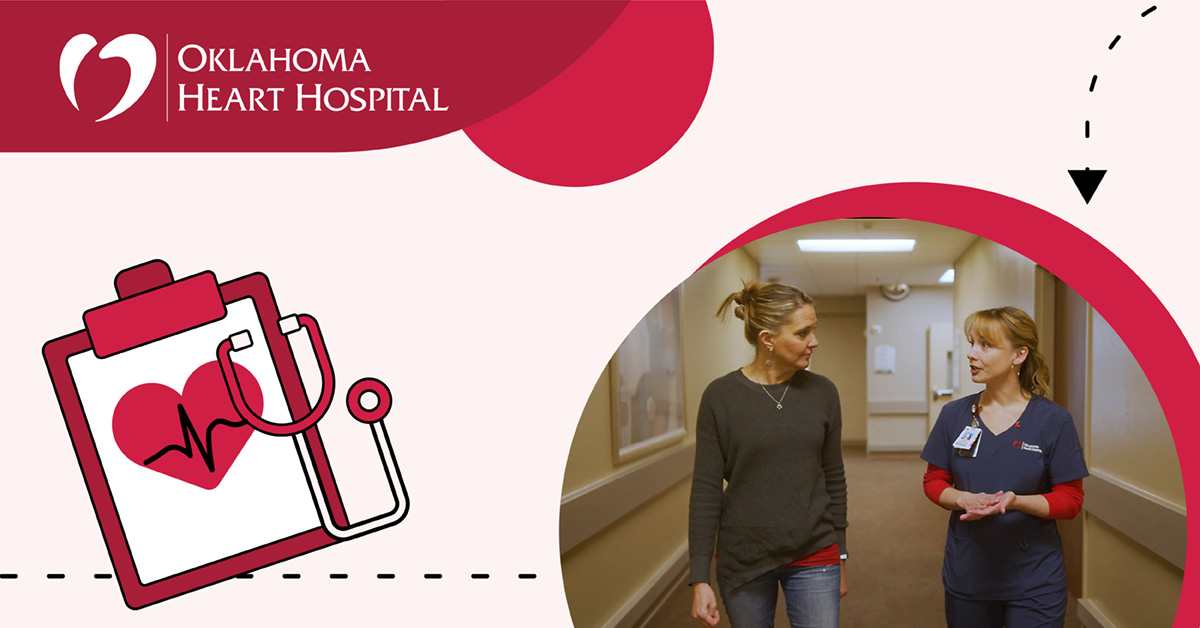How Menopause Affects the Heart

Menopause affects many aspects of a woman’s life, and heart health is no exception. Heart disease is the leading cause of death for both men and women in the United States, though it often develops at later ages in women compared to men. A woman’s risk for heart disease increases dramatically after menopause, and by the time she’s 65, her risk is equal to that of a man.
Many of the changes to women’s heart health during perimenopause (the years leading up to menopause) and menopause are due to a combination of a changing hormones and increasing age. Here are some ways menopause can affect the heart and steps to help protect the heart as women age.
Heart palpitations
Along with hot flashes, heart palpitations are a well-known symptom of perimenopause. As the body begins ceasing the release of eggs, it produces less of the hormone estrogen. This decrease in estrogen can trigger an irregular heartbeat, or arrhythmia, which often feels like a pounding or fluttering feeling in the chest.
In perimenopausal women, the specific type of arrhythmia is often a premature ventricular contraction (PVC). This is an extra heartbeat that originates in the ventricle. Studies show that hormone replacement therapy may be helpful in relieving PVC in the short term, but women should talk to their doctor about the benefits of reducing PVC compared to the potential risks of hormone replacement therapy.
The type of heart palpitations linked to menopause are generally not dangerous, but those experiencing them should consult a doctor to rule out other causes. They are often treated with lifestyle changes, such as a reduction in caffeine or alcohol intake.
Risk of heart disease
The increase in risk for heart disease during menopause involves several changes in the body. Before menopause, the presence of estrogen protects the body from some risks of heart disease. As estrogen decreases, it no longer protects the body in the same way.
Menopause also brings a difference in the balance of LDL and HDL cholesterol, which increases the potential for plaque formation. When LDL cholesterol levels increase, more plaque can build up in the arteries. The walls of blood vessels also thicken with age, which can increase the likelihood of plaque buildup. The presence of lipids (fats) in the bloodstream are another contributor to increased risk of heart disease.
Age is an undeniable factor in risk for heart disease, and the changes that occur in a woman’s body through menopause also increase the risk.
Protecting the heart
The best way to protect the heart during perimenopause and menopause is to address the lifestyle risk factors that are in our control and treat any other conditions that may increase the risk for heart disease. Some steps to protect the heart include:
- Quit smoking
- Reduce use of caffeine and alcohol
- Maintain a healthy weight by eating a heart healthy diet
- Exercise
- Manage stress
- Take medication for high blood pressure, cholesterol, and diabetes as prescribed
For many years, hormone replacement therapy (HRT) was the recommended treatment to relieve menopausal symptoms and reduce health risk. However, more studies have emerged, and the results were not as clear. While HRT was helpful in relieving immediate symptoms of menopause like hot flashes and heart palpitations, some research concluded long-term risk reduction had as much to do with lifestyle changes as HRT.
Additionally, HRT carries increased risk for breast cancer, coronary heart disease, gall bladder disease, and blood clots. Because of additional studies over time, HRT is no longer the blanket recommendation for reduction in heart disease risk for menopausal women. When it comes to menopause and heart health, women must discuss available treatment options with their doctor and weight the potential benefits and risks.
If you have questions about how perimenopause or menopause affects the heart, reach out to Oklahoma Heart Hospital to schedule an appointment with one of our physicians.
